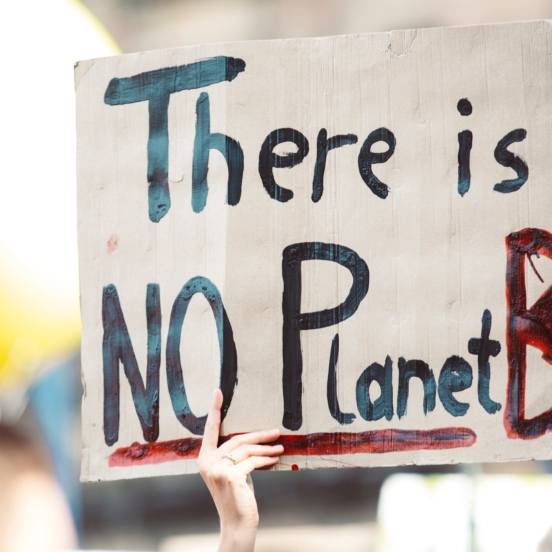Health
According to a new study, global temperatures could increase between 2.3 and 4.5°C (4.1 and 8.1°F) ruling out previous low-end estimates of 1.5°C (2.7°F), if human-induced carbon emissions continue to rise over the next 50 years. (The Washington Post) A severe drought exacerbated by climate change in Puerto Rico has led to an unstable water supply and government-mandated rationing as COVID-19 cases surge across the territory. (Grist) A recent UN report warns of an increase in hydrofluorocarbon emissions, a greenhouse gas thousands of times more potent than carbon dioxide, as hotter global temperatures increase global demand for air conditioning. (Mic)Check out our interview with Dr. Frederica Perera, founder of the Columbia Center for Children’s Environmental Health, about the role of pollution exposure on negative health outcomes in children. (GMMB)Equity
A new analysis has revealed that while wealthy Americans generate 25 percent more residential emissions than the poor, low-income Americans live in areas that bear the disproportionate burden of air pollution and extreme weather. (AP News)A new report found that minority and low-income groups are three times more likely to live in communities with limited access to natural spaces. (The Washington Post)
Politics & Economy
A bipartisan majority has approved the passage of the Great American Outdoors Act, which will secure funding of $900 million annually for the conservation of U.S. public lands. (CNN)
In an open letter responding to their $572 billion green stimulus package—the world’s largest climate pledge to date—environmental leaders criticizes the EUfor setting 2050 as th target to meet carbon neutrality goals and for refusing to immediately divest from fossil fuels. (Reuters, The Guardian)
Despite opposition from the Trump administration, a federal judge has upheld California’s cap-and-trade agreement with Quebec that incentivizes companies in the state and province to limit transportation emissions. (The Hill)
Newly announced airplane emissions standards from Mr. Trump’s EPA are facing backlash from environmentalists who say the standards fail to push airlines beyond their own emissions targets and do nothing to combat the industry’s contribution to climate change. (The New York Times)
Action
Menlo Park, California announced the nation’s first citywide commitment to carbon neutrality by 2030, and the Sacramento Municipal Utility District announced a similar pledge to deliver zero-carbon electricity to its 1.5 million customers in the same time frame. (The Almanac, Utility Dive)
A group of nine major corporations, including Microsoft and Unilever, launched a Transform to Net Zero initiative that will help businesses develop science-based climate targets and policies to achieve carbon neutrality. (GreenBiz)
Technology giant Apple and consumer products company Procter & Gamble announced plans to achieve carbon neutrality by 2030 by working to eliminate emissions from their product life cycles and contributing to carbon-offset programs. (MarketWatch, Fortune)
Major U.S. bank Morgan Stanley announced that it will now count and publicly disclose the greenhouse gas emissions from projects that are financed by its loans and investments. (Politico)
Kicker
Want to become a more sustainable consumer of tech products? Check out these tips for buying gadgets that last.
“It is our responsibility to leave this planet cleaner and greener. That must be our legacy.”
– The Honorable John Lewis (D-GA), former U.S. Representative and civil rights leader |

